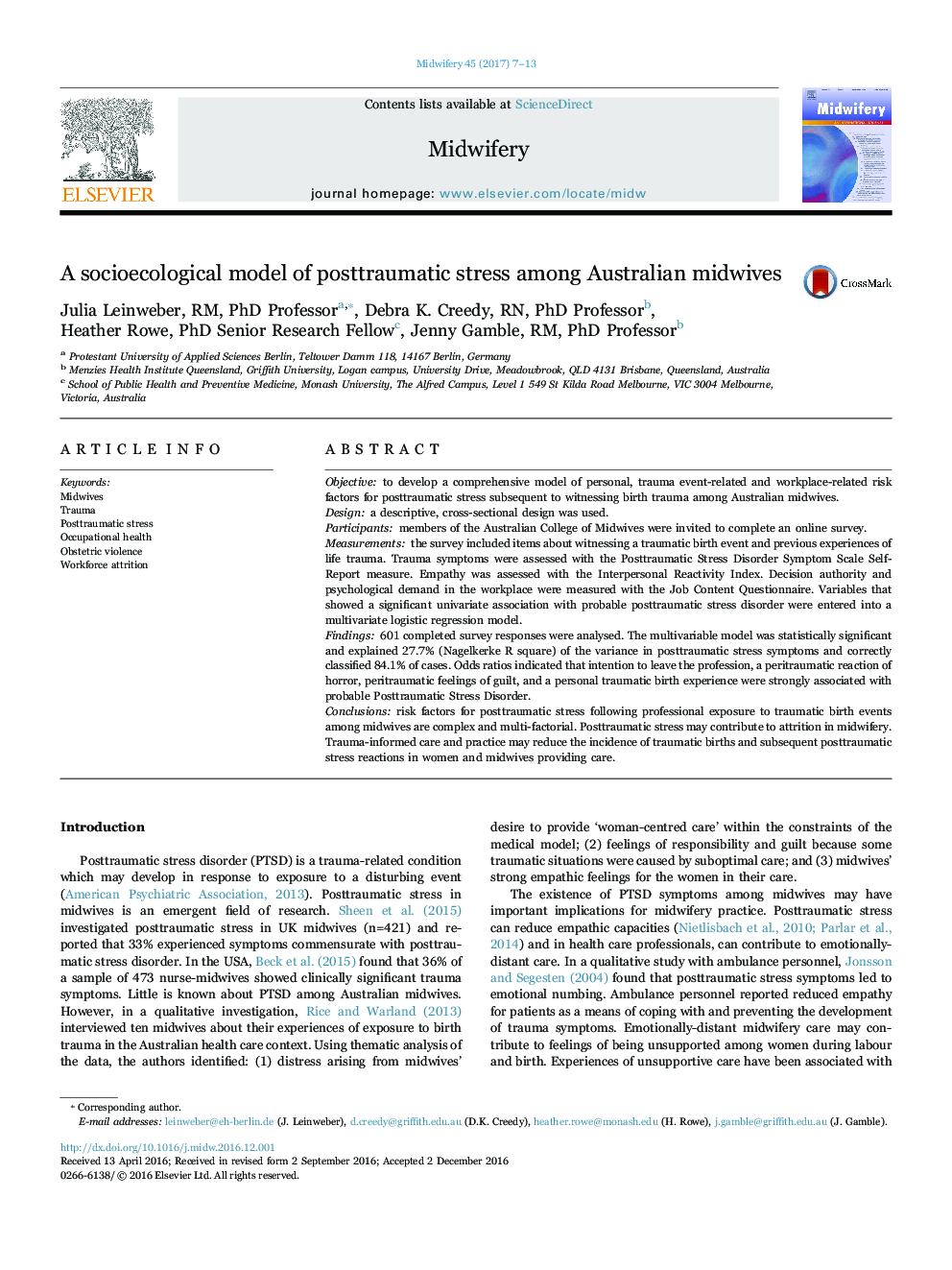| Article ID | Journal | Published Year | Pages | File Type |
|---|---|---|---|---|
| 5122397 | Midwifery | 2017 | 7 Pages |
â¢Recalled reactions of horror and feelings of guilt during or shortly after witnessing birth trauma predicted probable posttraumatic stress disorder among midwives.â¢Witnessing birth trauma can reactivate personal traumatic birth experiences among midwives.â¢Posttraumatic stress symptoms were associated with intention to leave the profession and may contribute to attrition in midwifery.
Objectiveto develop a comprehensive model of personal, trauma event-related and workplace-related risk factors for posttraumatic stress subsequent to witnessing birth trauma among Australian midwives.Designa descriptive, cross-sectional design was used.Participantsmembers of the Australian College of Midwives were invited to complete an online survey.Measurementsthe survey included items about witnessing a traumatic birth event and previous experiences of life trauma. Trauma symptoms were assessed with the Posttraumatic Stress Disorder Symptom Scale Self-Report measure. Empathy was assessed with the Interpersonal Reactivity Index. Decision authority and psychological demand in the workplace were measured with the Job Content Questionnaire. Variables that showed a significant univariate association with probable posttraumatic stress disorder were entered into a multivariate logistic regression model.Findings601 completed survey responses were analysed. The multivariable model was statistically significant and explained 27.7% (Nagelkerke R square) of the variance in posttraumatic stress symptoms and correctly classified 84.1% of cases. Odds ratios indicated that intention to leave the profession, a peritraumatic reaction of horror, peritraumatic feelings of guilt, and a personal traumatic birth experience were strongly associated with probable Posttraumatic Stress Disorder.Conclusionsrisk factors for posttraumatic stress following professional exposure to traumatic birth events among midwives are complex and multi-factorial. Posttraumatic stress may contribute to attrition in midwifery. Trauma-informed care and practice may reduce the incidence of traumatic births and subsequent posttraumatic stress reactions in women and midwives providing care.
